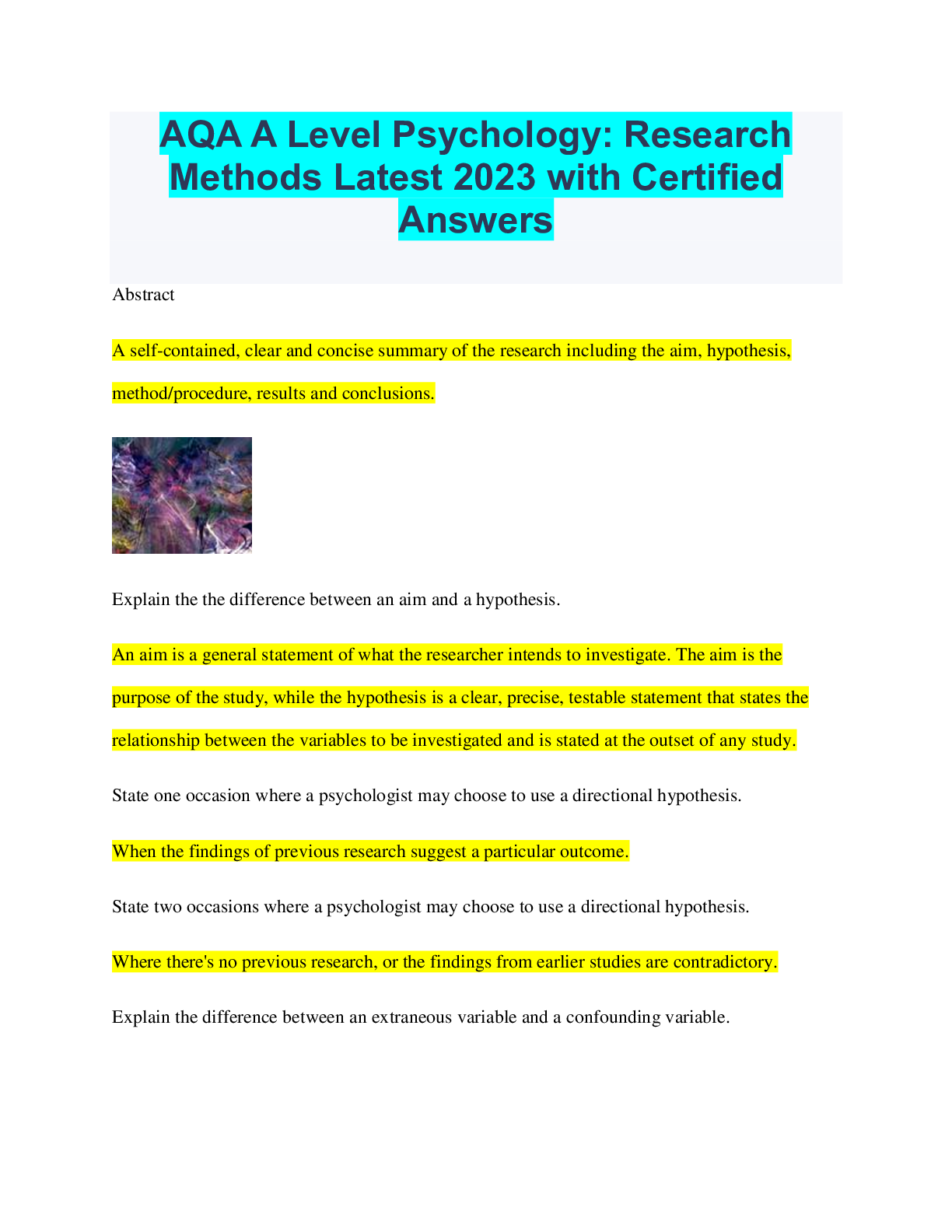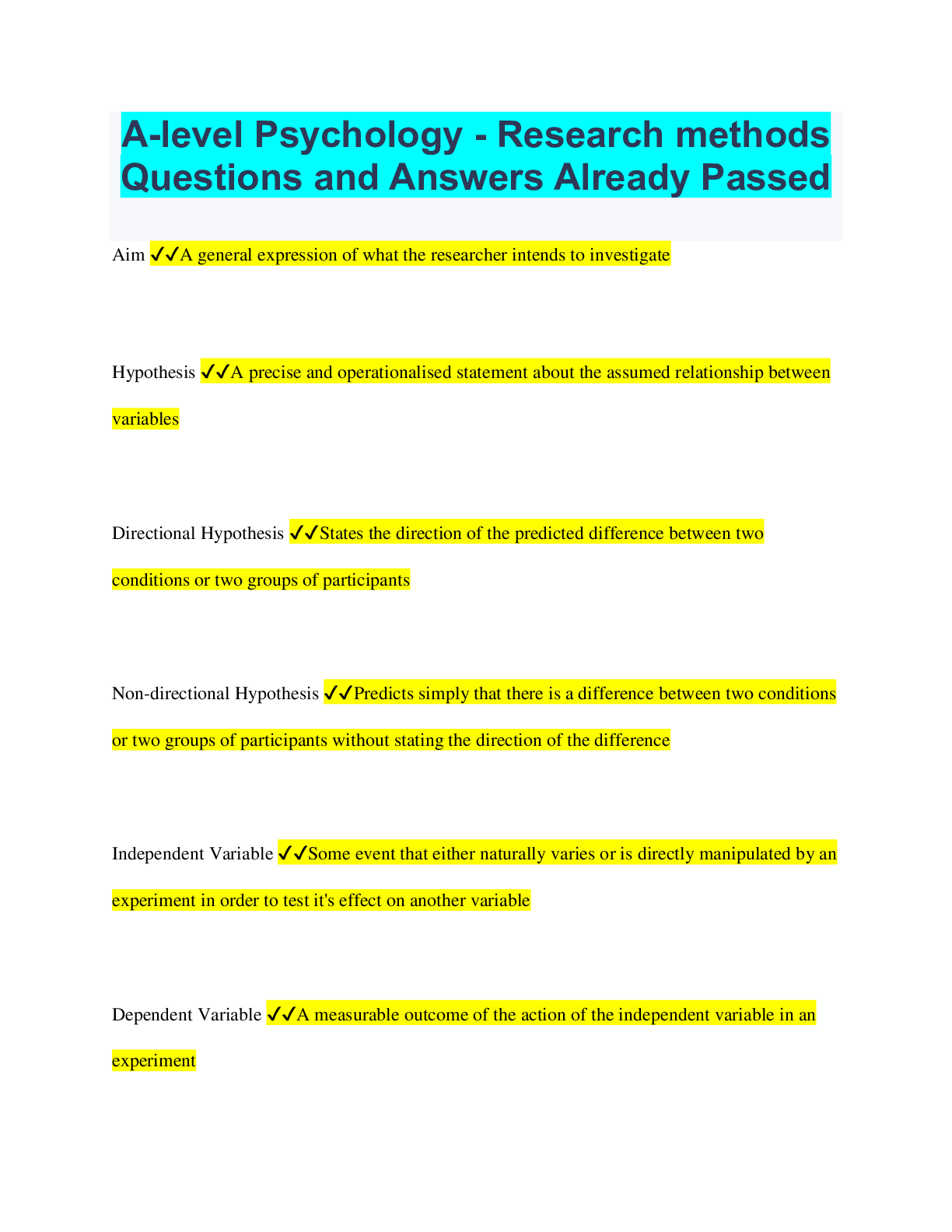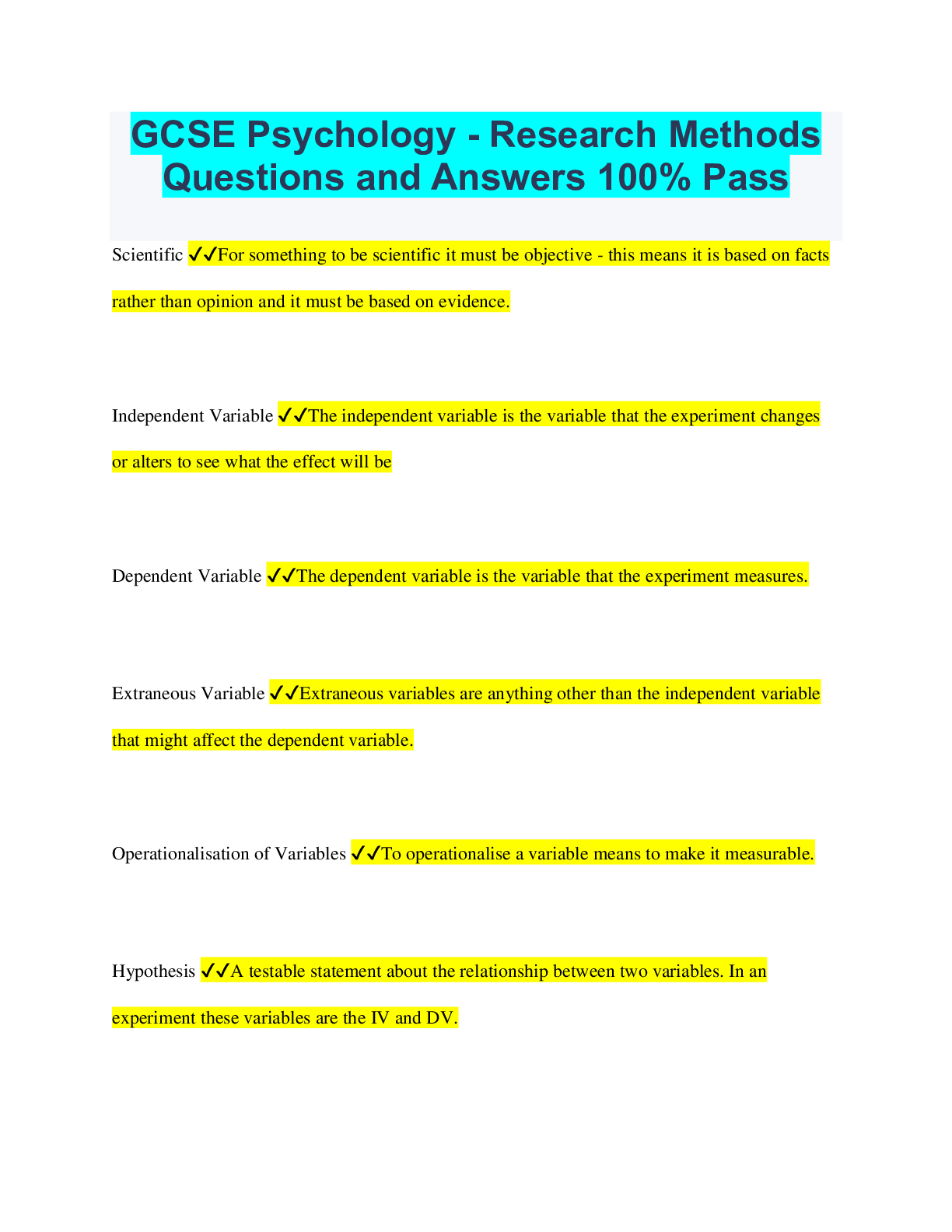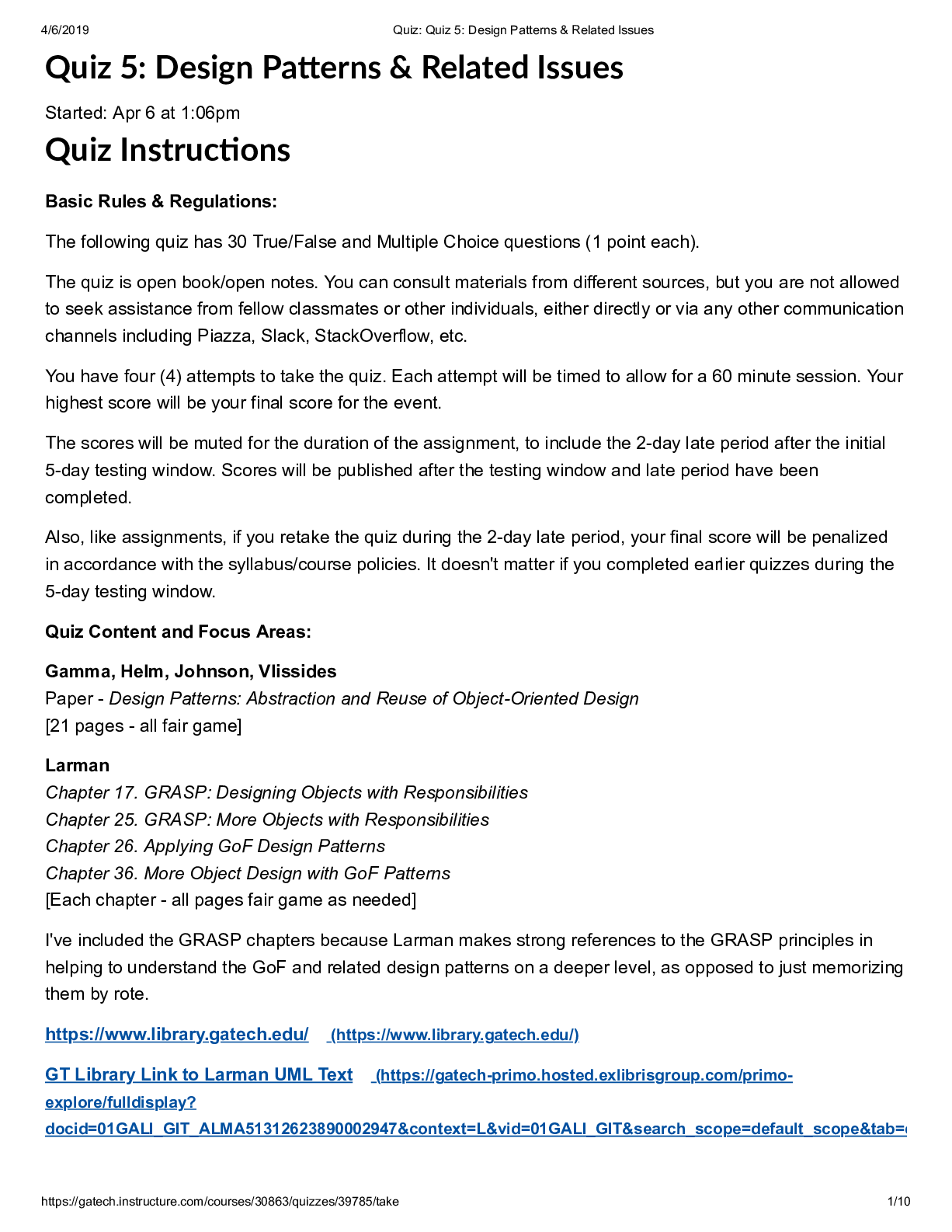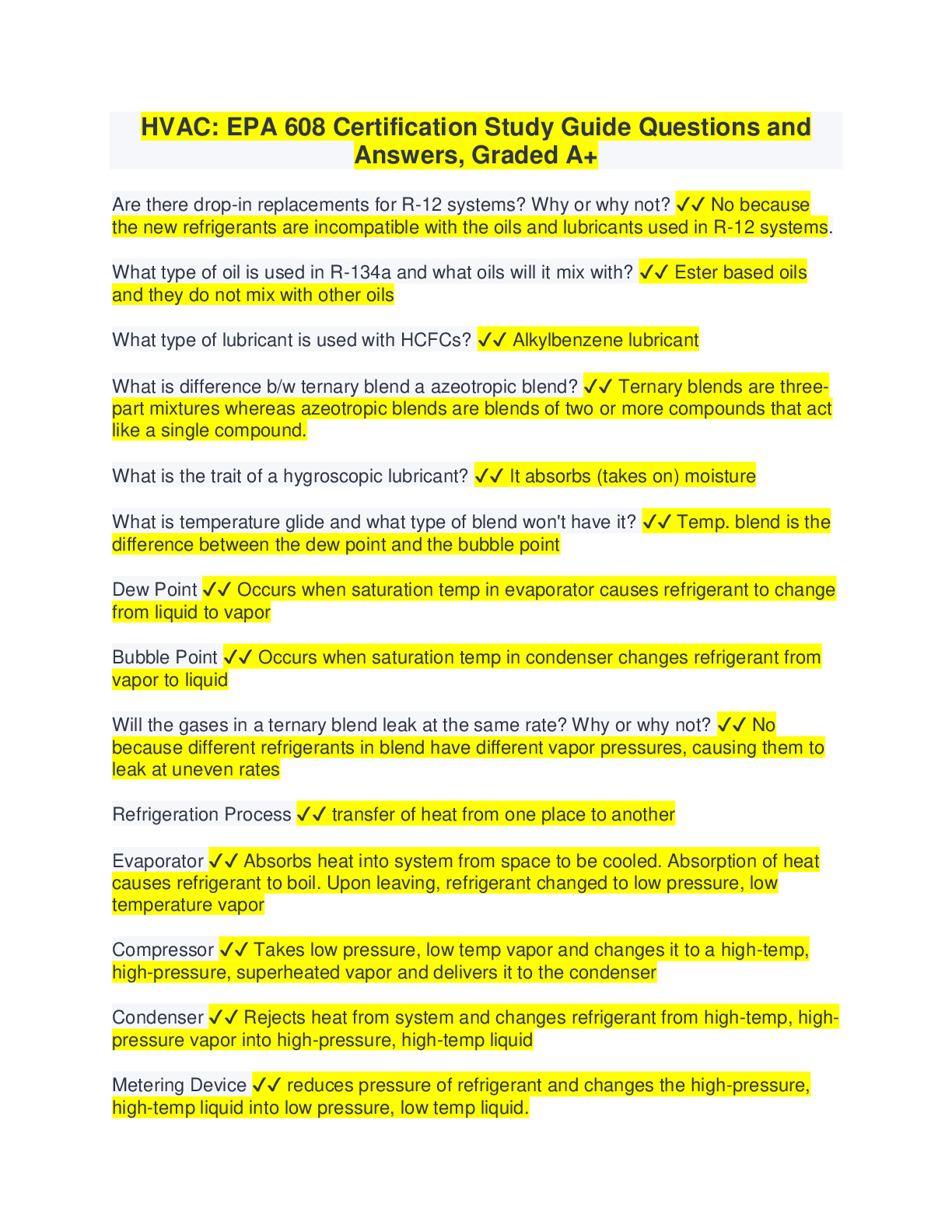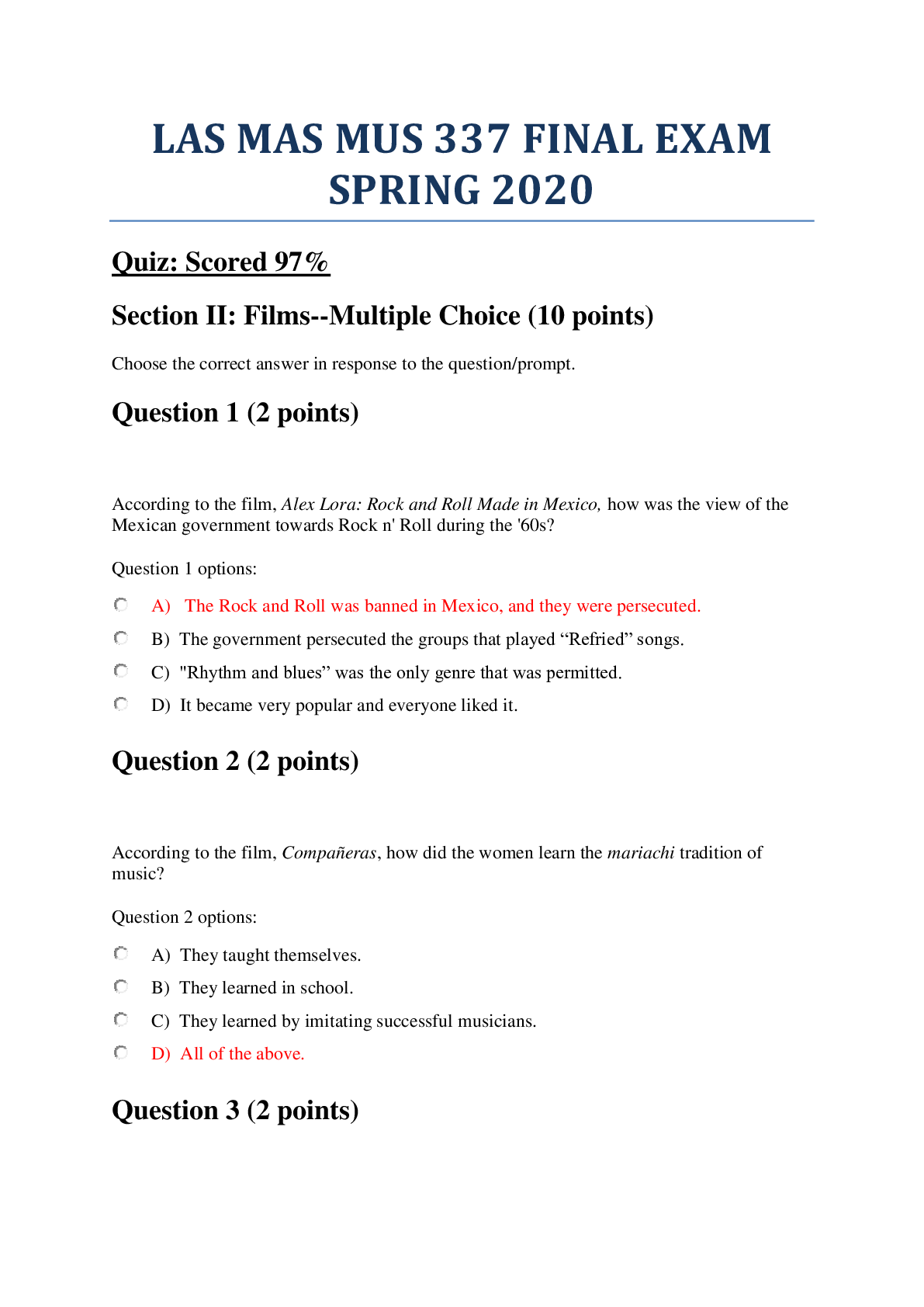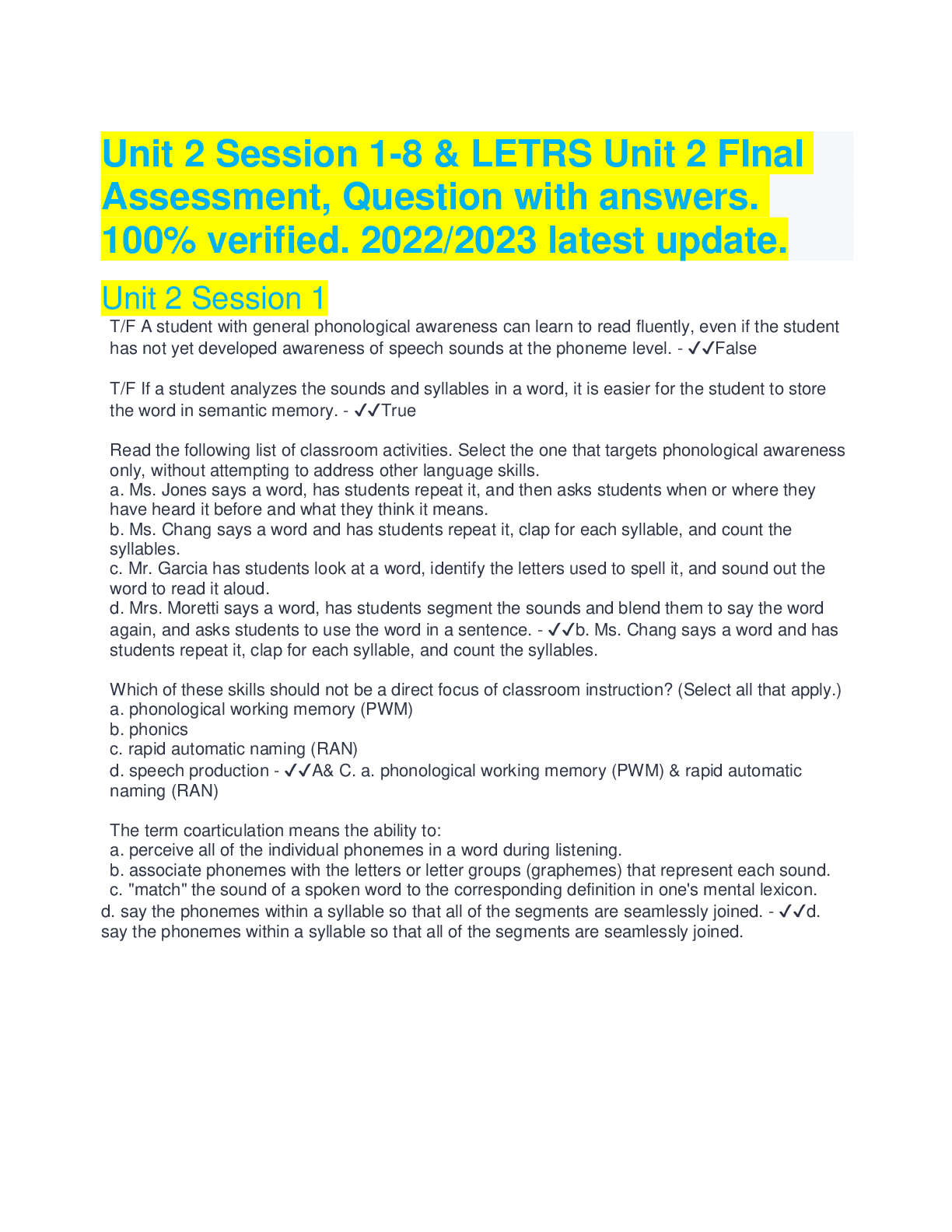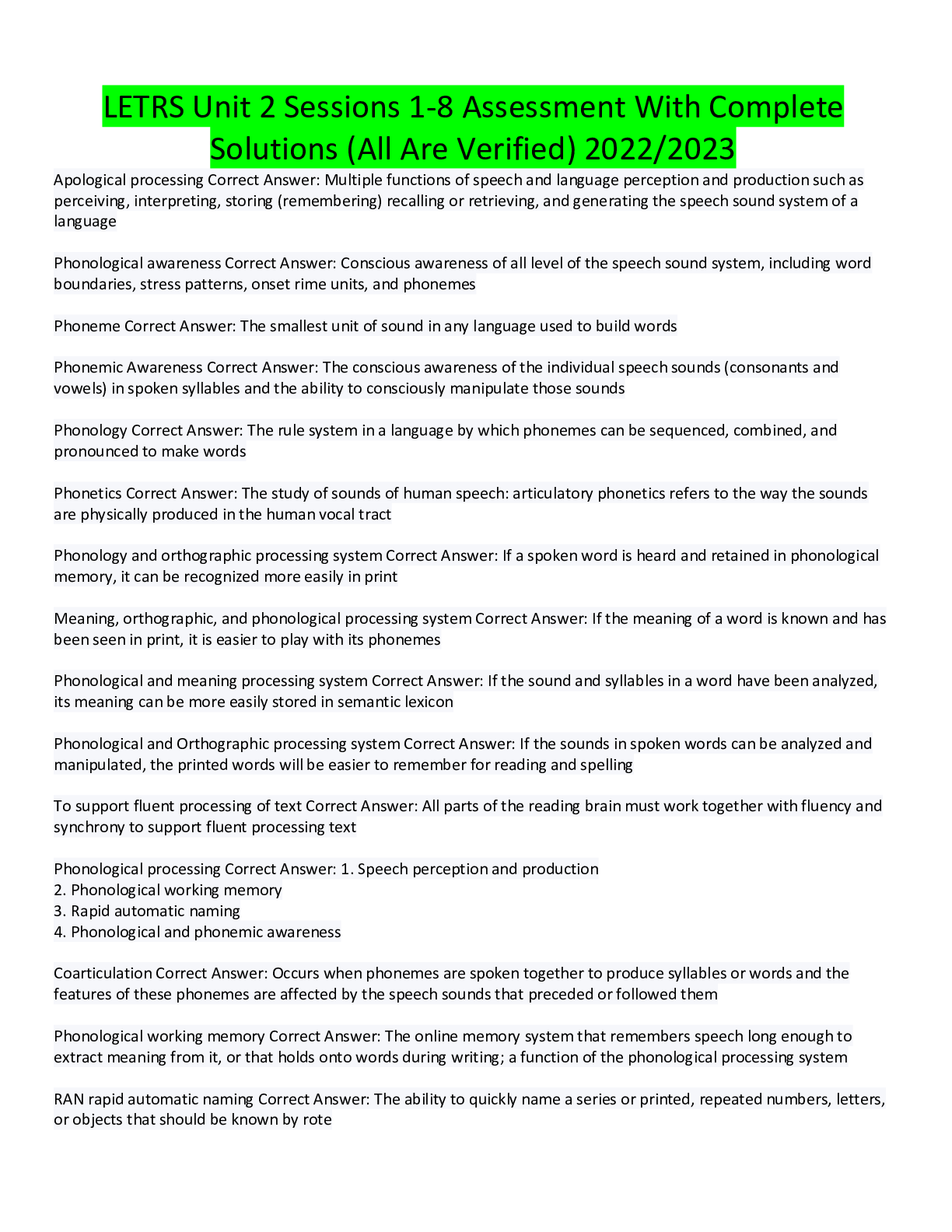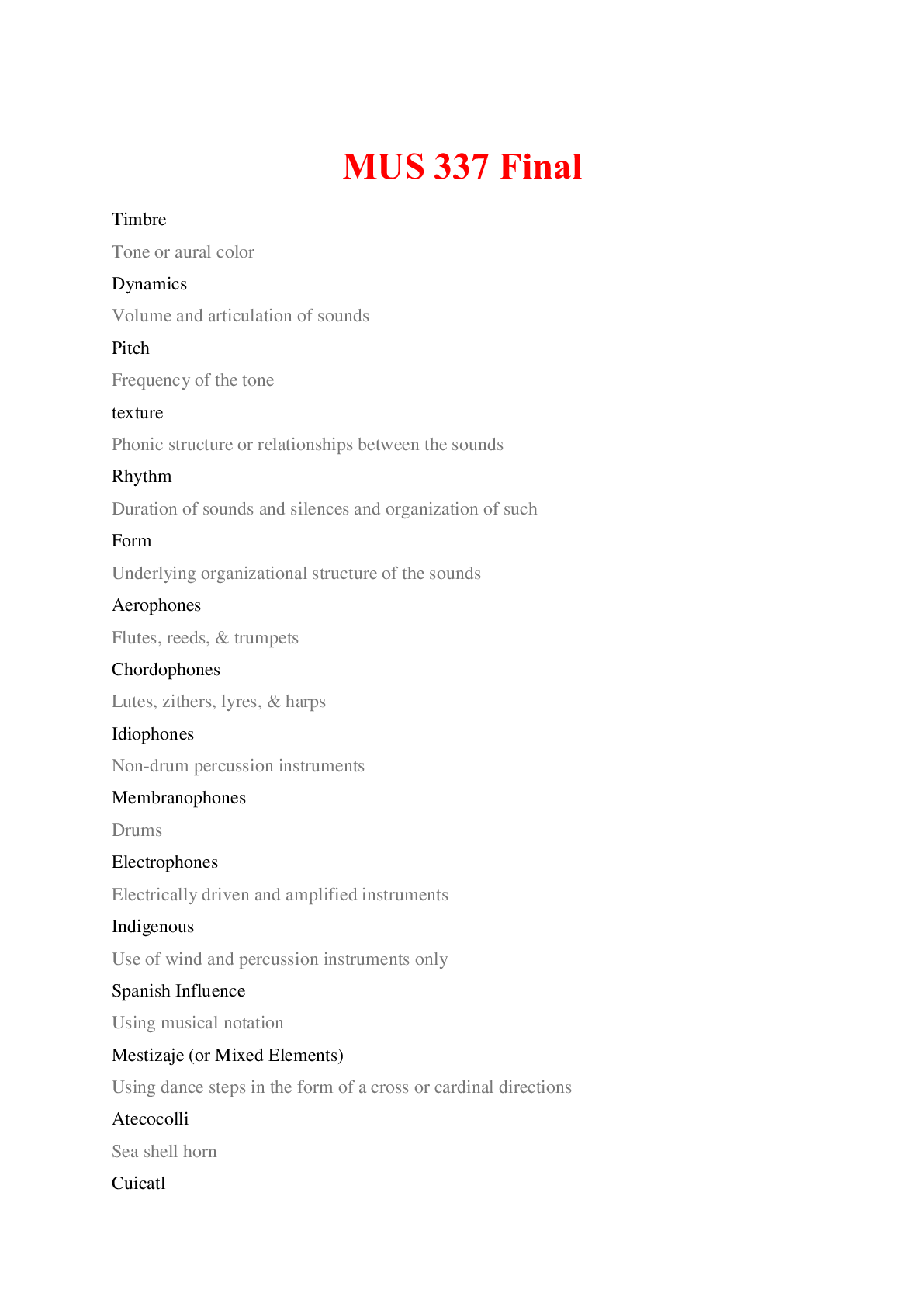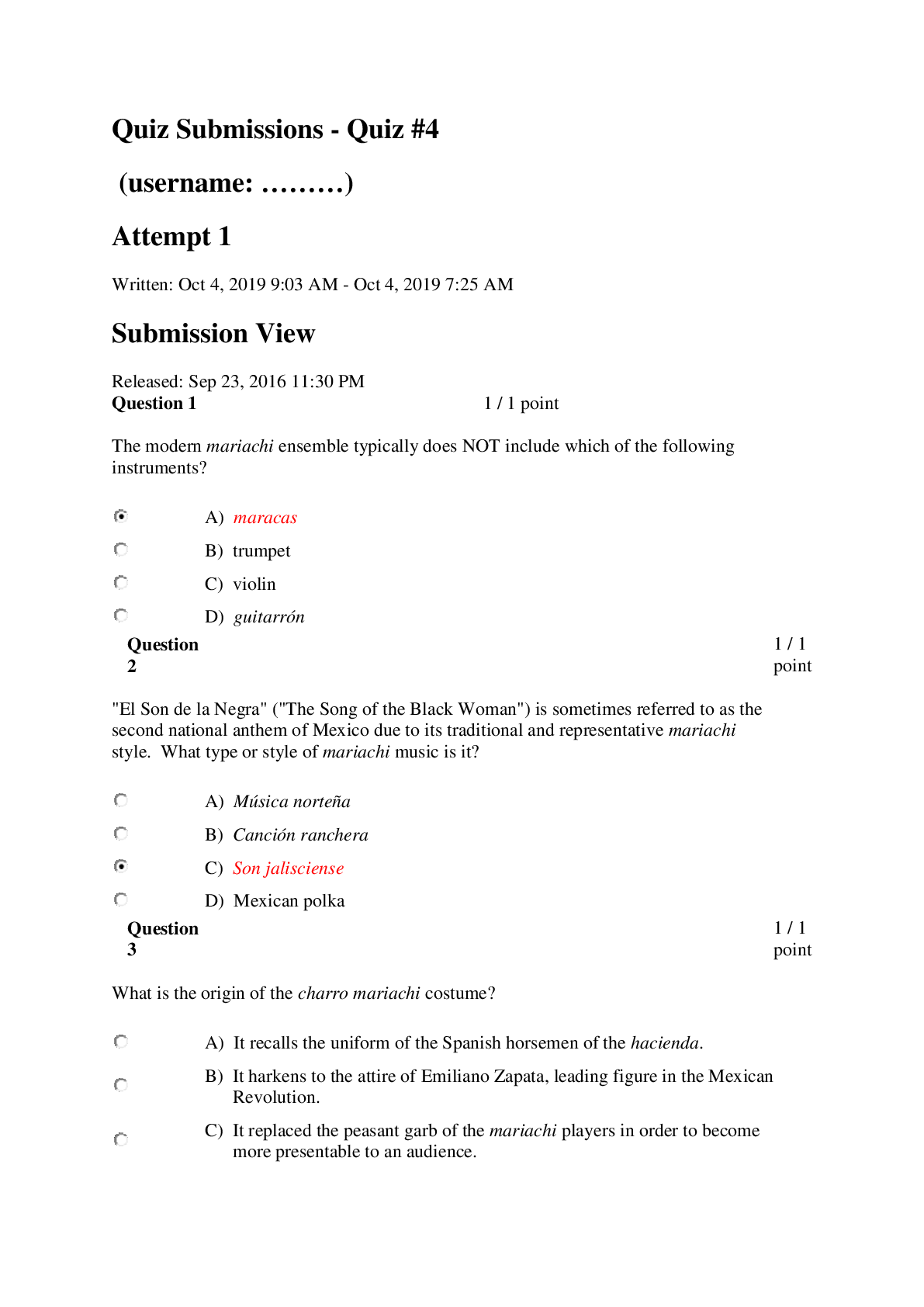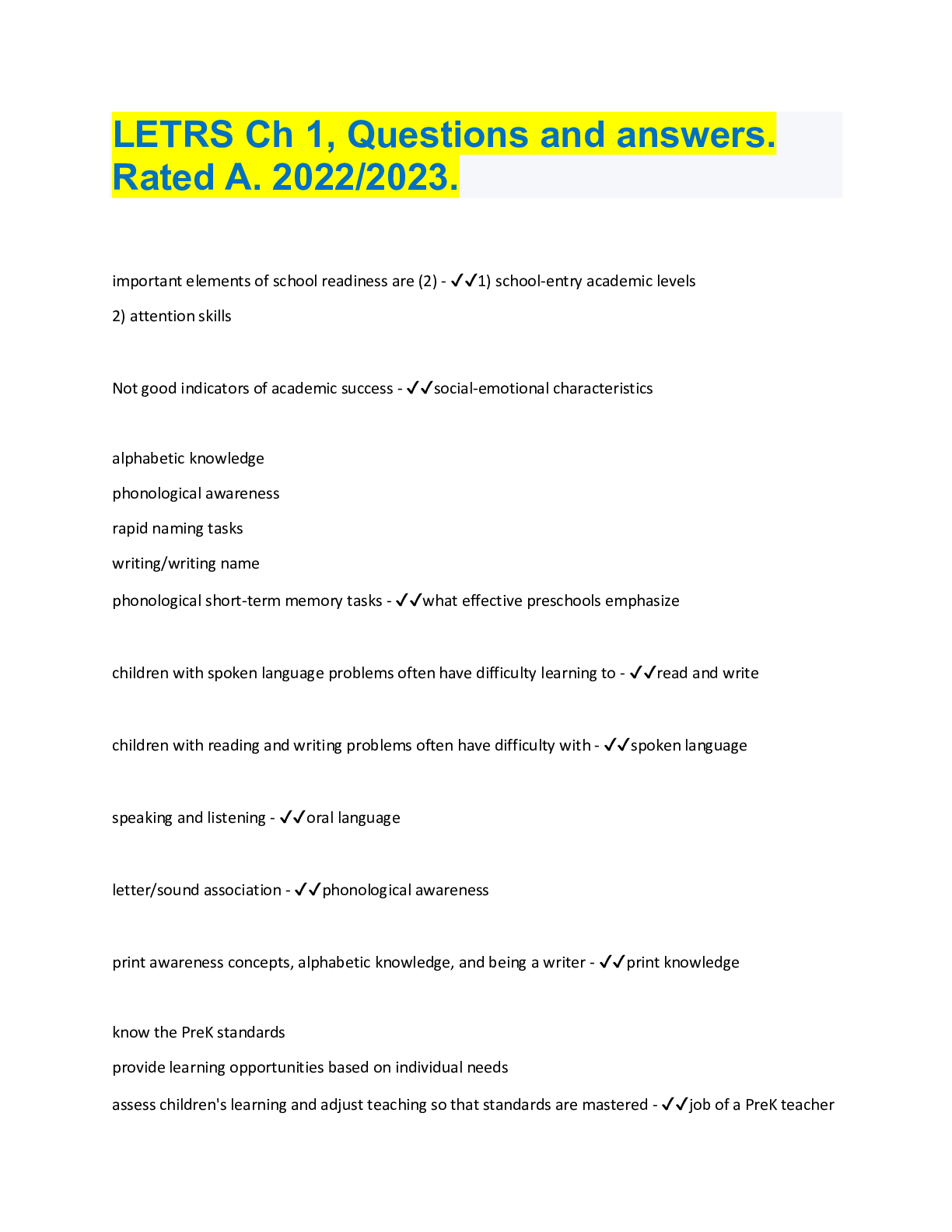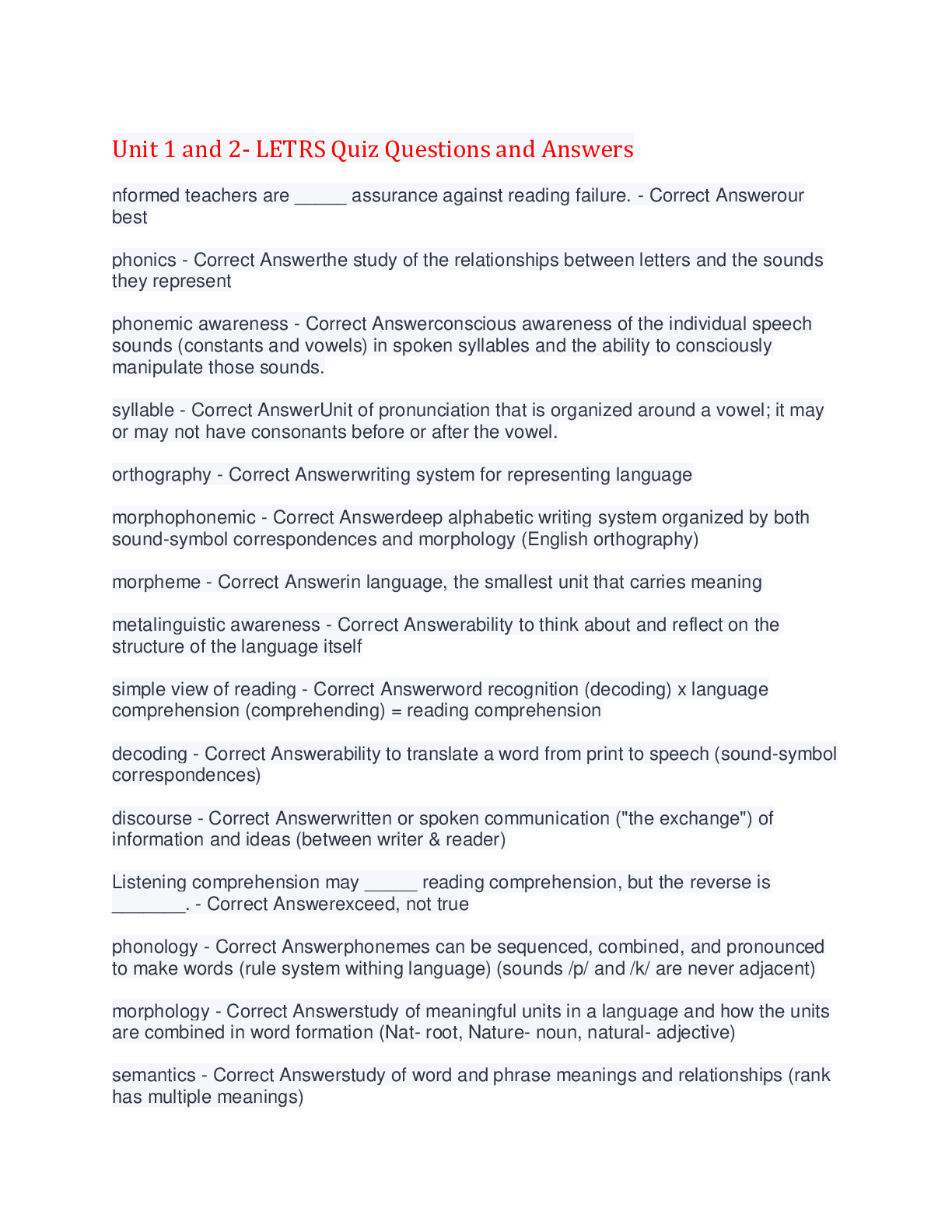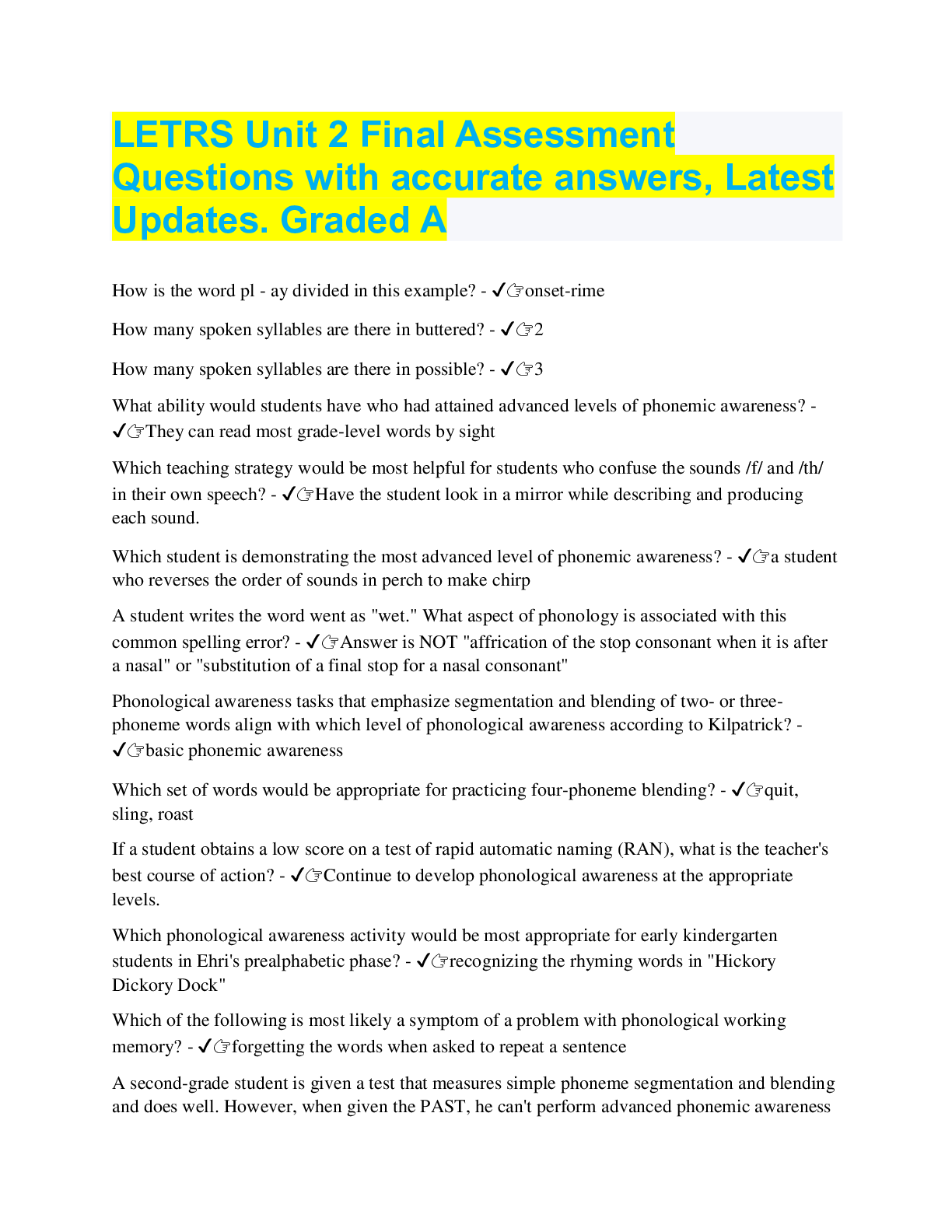Psychology > QUESTIONS & ANSWERS > A Level Psychology - Research Methods Latest 2023 Rated A+ (All)
A Level Psychology - Research Methods Latest 2023 Rated A+
Document Content and Description Below
A Level Psychology - Research Methods Latest 2023 Rated A+ Explain what is mean by participant observation ✔✔Observations made by someone who is also participating in the activity being observe... d, which may affect their objectivity. Explain the difference between a naturalistic observation and a controlled observation ✔✔Naturalistic observations are conducted in a natural environment in which the spontaneous behaviour of participants is studied whereas controlled observations are conducted in a controlled environment, most likely a psychology laboratory. In a naturalistic observation, the observer does not interfere in any way with what is happening. In a controlled observation, some variables are regulated by the observer, reducing the naturalness of the environment as well as the behavior, and the participants are likely to know they are being watched. Identify and explain one ethical issue related to covert observations ✔✔Privacy - some people don't expect to be observed in certain situations and so observing them in these situations could be considered an invasion of their privacy. Give one limitation and one strength of using non-participant observation as a method of collecting data ✔✔One strength is, by reducing the level of interaction between the researcher and the participant, you can reduce the risk of observer effects. However, this can only happen if the observation is covert. One limitation is the danger of observer effects affecting the participant's behaviour if the observation is overt as they are aware that they are being watched. Explain what is meant by time sampling. Include an example in your answer ✔✔Time sampling is when you record behaviours in a given time frame. E.g. Noting what a target individual is doing every 30 seconds. Explain the difference between event sampling and time sampling ✔✔Event sampling is when the researcher records an event every time it happens (e.g. Counting how many times someone scratches their nose in a 5 minute interval) whereas time sampling is when the researcher decides on a time interval and then records the behaviour occurring at that time. E.g. Noting a student's behaviour every 10 seconds. Explain how behavioural categories are used in observational research. Use examples in your answer ✔✔Behavioural categories are used in observational research to break up a continuous stream of action into a series of separate behavioural components, which helps to operationalise the behaviour being studied. The observer notes down when the behaviour from one of more of the behavioural categories occurs. E.g. Ticking a box when an individual laughs, cries, yawns, etc. Explain what is meant by self-report techniques ✔✔A self-report technique is any method which involves asking a participant about their feelings, attitudes, beliefs, etc. E.g. A questionnaire or an interview. Explain the difference between a questionnaire and an interview ✔✔A questionnaire is simply a way to collect data through a series of written questions whereas an interview involved face-toface 'real time' interaction with another individual or can be conducted over the phone. Explain the difference between a structured and an unstructured interview ✔✔A structured interview has pre-determined questions and the questions are standardised so they can be easily replicated. The interviewer doesn't deviate from the original questions. An unstructured interview may begin with pre-determined questions but the further questions develop ok the basis of the answers that are given. Give one limitation to using a questionnaire rather than a structured interview ✔✔A structured interview provides insight into the interviewee's behaviour, emotions, attitudes, etc. whereas a questionnaire could be argued as being inadequate to understand this as the information given is often quantitative. Identify and explain two issues that are important in questionnaire construction ✔✔One of the issues is social desirability bias, where interviewees give answers to make them look nicer, more generous, etc. (i.e. More socially desirable) rather than being entirely truthful. Double negatives are also an issue as they reduce clarity and may cause the interviewee to become unsure of their answer, therefore yielding unreliable data. Identify and explain two issues that are important in the design of interviews ✔✔One issue is recording the interview by taking notes, why may interfere with their listening skills. The interviewee may feel that what they say isn't valuable as the interviewer may not write everything down. Another issue is the effect of the interviewer. One example of this includes non-verbal communication, where various behaviours, e.g. Sitting with arms arms crossed and frowing, may communicate disapproval and disinterest. This may lead the interviewee to feel insecure or frustrated, causing them to alter their behaviour and possibly give answers that are not entirely truthful. Explain the difference between open and closed questions ✔✔Open questions are questions that invite the respondents to provide their own answers rather then selecting from a set of provided answers. Whereas, closed questions are questions that have a pre-determined set of answers that the respondents are required to choose from. An example of an open question might be "what do you like about your job?". And example of a closed question might be "is maths your favourite subject?". Give one strength of using closed questions in an interview ✔✔Closed questions have a limited range of answers and so produce quantitative data. Both of these aspects make the answers easier to analyse as they can be interpreted using graphs and measures like the mean. Explain what is meant by zero correlation ✔✔A correlation where the two variables are not linked and so does not indicate a relationship between the co-variables. However, this does not mean there is no relationship between the co-variables at all. Explain the difference between experiments and correlations ✔✔An experiment isolates and manipulates the independent variable to observe its effects on the dependant variable, and controls the environment in order to eliminate extraneous variables. Experiments attempt to establish a cause and effect whereas a correlation identifies variables and looks for a relationship between them so casual conclusions can be drawn to determine the extent of the association between two variables. The data from a correlational study produces a scattergram with dots arranged in a line from bottom left to top right. Explain why kind of correlation this is ✔✔It is a positive correlation as both variables increase together. A research study produced a negative correlation between two variables. Explain what this means ✔✔This means that as one variable increased, the other variable decreased, hence their relationship is defined as a negative correlation. [Show More]
Last updated: 1 year ago
Preview 1 out of 6 pages

Also available in bundle (1)

AQA A Level Psychology Research Methods Bundled Exams Questions and Answers Already Passed
AQA A Level Psychology Research Methods Bundled Exams Questions and Answers Already Passed
By Nutmegs 11 months ago
$20
12
Reviews( 0 )
Document information
Connected school, study & course
About the document
Uploaded On
May 08, 2023
Number of pages
6
Written in
Additional information
This document has been written for:
Uploaded
May 08, 2023
Downloads
0
Views
72

.png)
.png)
.png)
.png)
.png)
.png)
.png)
.png)
.png)
.png)
.png)

.png)
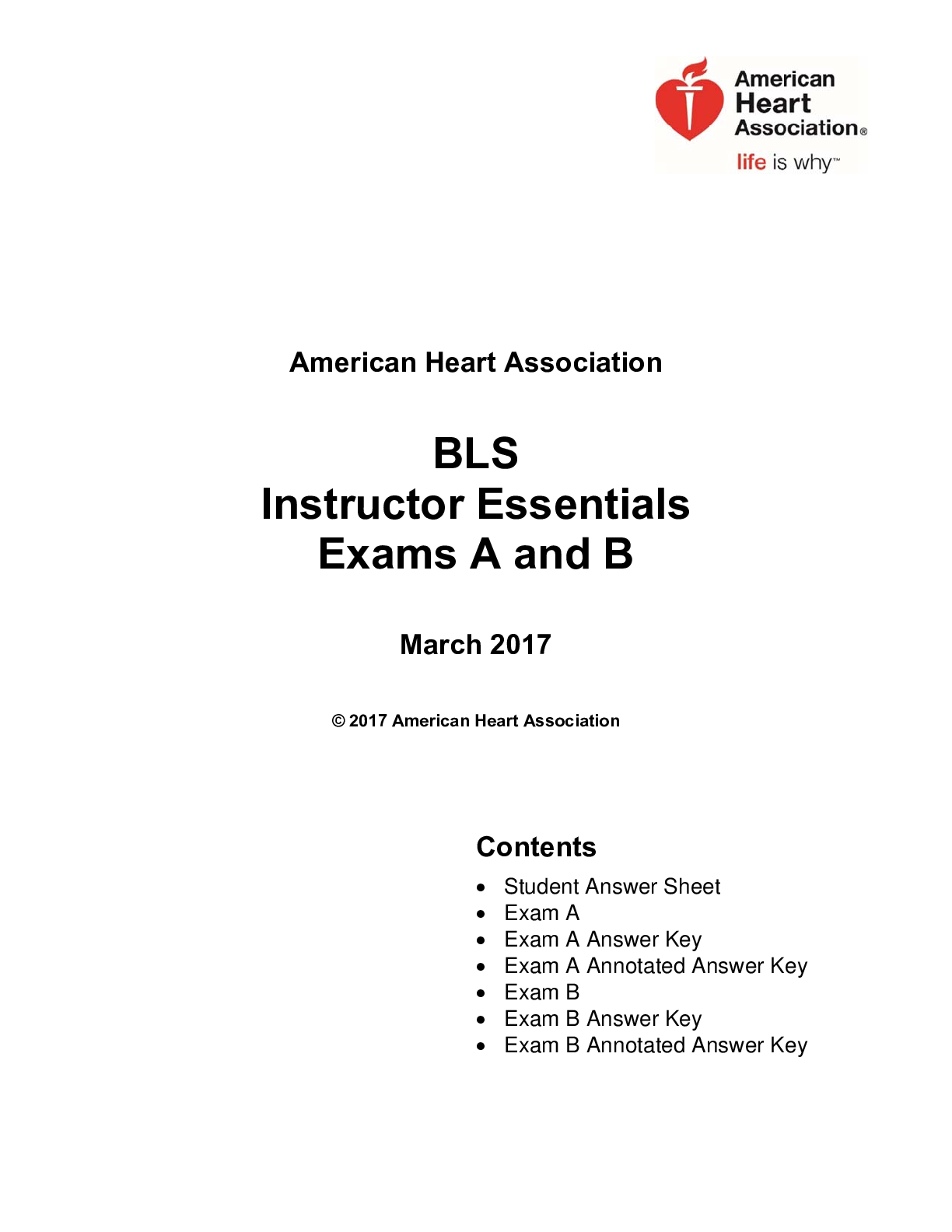
.png)
.png)
.png)
